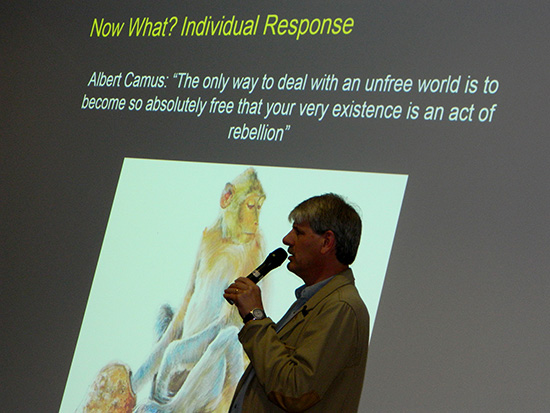
AUCKLAND (Pacific Media Watch): A fierce debate broke out during a public lecture about “abrupt climate change” last night with two academics locking horns over scientific predictions about the future of the planet and an audience seeking answers about a path of action.
United States professor emeritus Guy McPherson in natural resources and ecology of the University of Arizona spoke to a packed auditorium to open his New Zealand speaking tour.
Professor McPherson suggested that humans faced extinction as a result of climate change within 40 years, based on several factors:
-
- there has been no pause in global warming, which has accelerated since 1997;
-
- the planet was discovered last year within 1 percent of being uninhabitable;
- - and that 39 self reinforcing feedback loops now existed.
Climate feedback loops occur when "human activities increase global temperature through the addition of the heat-trapping gases ... Then, the warmer atmosphere causes more evaporation, which increases the amount of water vapor, causing more warming. This leads to more evaporation, even more warming, and so on, in a self-reinforcing cycle", according to Climate Communication.
Uncertain science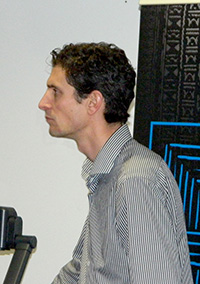 However, discussant Dr Sebastian Leuzinger, a senior lecturer in ecosystems ecology at AUT University, disputed Prof McPherson's conclusions, saying climate change science was inherently uncertain because the physical boundary conditions were uncertain - such as rainfall and soil conditions at any given place on earth at any point and how they would react to a rise in temperature.
However, discussant Dr Sebastian Leuzinger, a senior lecturer in ecosystems ecology at AUT University, disputed Prof McPherson's conclusions, saying climate change science was inherently uncertain because the physical boundary conditions were uncertain - such as rainfall and soil conditions at any given place on earth at any point and how they would react to a rise in temperature.
During discussion time, Dr Leuzinger accused Prof McPherson of using unscientific papers to make a scientific argument, of “cherry picking” and then of effectively advocating global suicide by saying that humans were going to die anyway.
Prof McPherson replied that accusing him of supporting mass suicide was the most unprofessional behaviour he had ever seen and that people needed to take action to save the planet.
"The alternatives are being pointed out and being lived by indigenous people,” he said.
A Samoan criminology lecturer in the audience also challenged Dr Leuzinger over his statements, citing the case of the Carteret Islanders in Papua New Guinea and other Pacific peoples being forced to relocate in recent years because of climate change.
Dr Laumua Tunufa'i said what he had witnessed in the outer islands of Papua New Guinea was not a constant or slow growth in climate change at all.
He had seen fast damaging effects of climate change unfolding on his friends and family in recent times.
Disappearing island
"I have friends from Papua New Guinea who have been relocated because their island is disappearing.
“They have been relocated to Bougainville, which is not the same culturally, and the Bougainvilleans do not accept them even though they are all Papua New Guineans politically.
“Right next door to them are more disappearing islands. How do we explain this to the people on disappearing islands?" he asked.
Professor McPherson said there was no longer any linear growth in climate change. The rate of growth in atmospheric methane rose from the 1980s in a linear fashion, but went exponential from 2005 onwards.
"An exponential curve shows the runaway greenhouse that you might expect from planet that is 1 percent away from being uninhabitable" he added.
As far back as 1990, the United Nations Advisory Group on Greenhouse Gases warned that any increase in the earth’s temperature beyond 1 degree Celsius may “elicit rapid, unpredictable and non-linear responses that could lead to extensive ecosystem damage”.
“It appears that that was conservative”, Professor McPherson said. There had been no humans in existence at 3.5 degrees above the baseline in the past and with the earth headed for a temperature increase of over 4 degrees in the near future, all we can prepare for is extinction, “he added.
Ecosystem damage
At this point, there would be extensive ecosystem damage.
Professor McPherson re-emphasised that only the "complete collapse of civilisation" could prevent runaway climate change, and that this was unlikely to happen.
The notion that scientists would develop a new technology or by co-operating governments to save global warming was "fantasy", said Professor McPherson, since global warming was irreversible without massive geo-engineering of the atmosphere’s chemistry.
“It is not a solution and that is the only solution that the IPCC (Intergovernmental Panel on Climate Change) comes up with. It is fantasy technology, and fantasy technology that arrived a little bit too late” he said.
Professor McPherson told the audience several times that there was no solution to human extinction within the current ways of civilisation because humans were like monkeys that were enamoured with shiny objects.
He proposed that humans act to make a better world even if people were not going to be part of it, for the sake of those species that would survive.
“We don’t necessarily have to assume that we are all going to live to 100 years old to take those acts. Let’s act even if the asteroid is on the way,” Professor McPherson said.
Early deaths
He warned that five million poor people of colour a year were already dying early deaths because of climate change.
"It’s a white man’s world. We are at the apex of privilege and until we start dying in large numbers I don’t think there is going to be a lot of change,” he said.
Dr Leuzinger said the prediction that a doubling of atmospheric carbon dioxide would lead to a 4-degree increase in the surface temperature of earth was accurate, but the probability that humans were going to die within a few decades was very low, as most of the science had not concluded this.
The exponential damage was unlikely because in ecology there was rarely an exponential curve. The more diverse the disturbance, the smaller the response of an ecosystem, Dr Leuzinger added.
He did not support ending civilisation. "
It is becoming a little bit absurd to me. I don’t think we can dismantle society,” said Dr Leuzinger.
Action unlikely
Kevin Hester, organiser of Prof McPherson's speaking tour, added that it was unlikely that countries would reduce their emissions.
"The IPCC have been telling us for 16 years that it is imperative that we cut our emissions in that decade and a half our emissions have continued to grow. They live in the hope that our political leaders will come up with a solution, an international agreement,” he said.
“We all know how divided the political planet is. There is no way our emissions are going to go down. One of the last habitable places in the world is going to be the South Island."
Senior lecturer Dr Cristina Parra of AUT's School of Social Sciences and Public Policy said she was concerned that it did indeed look as if another mass extinction was on the way, but cautioned that more scientific evidence was needed if people were to believe that humans would be extinct within 40 years.
The seminar was co-hosted by the Pacific Media Centre and the School of Social Sciences and Public Policy.
It is expected to be followed with a symposium on climate change, which is proposed for AUT next year.
Professor Guy McPherson's Nature Bats Last blog
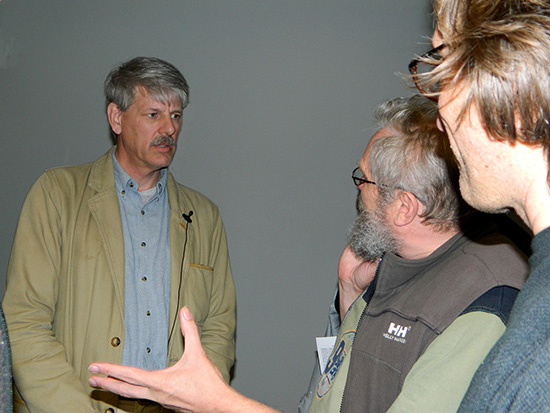
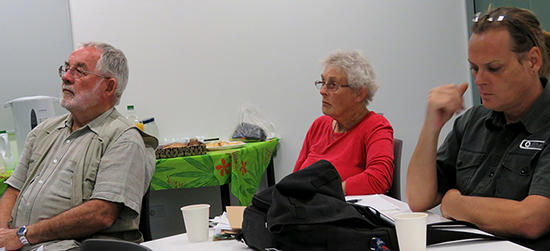
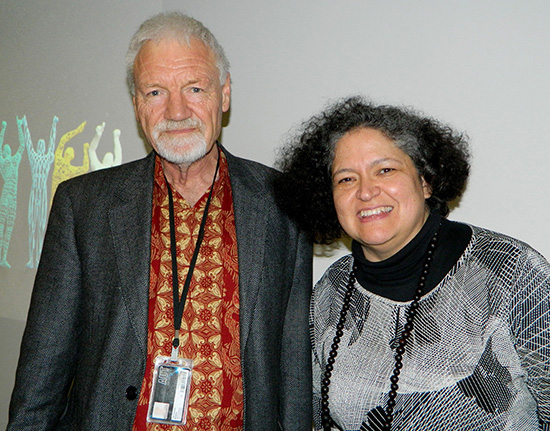
This work is licensed under a Creative Commons Attribution-NonCommercial 3.0 New Zealand Licence.




